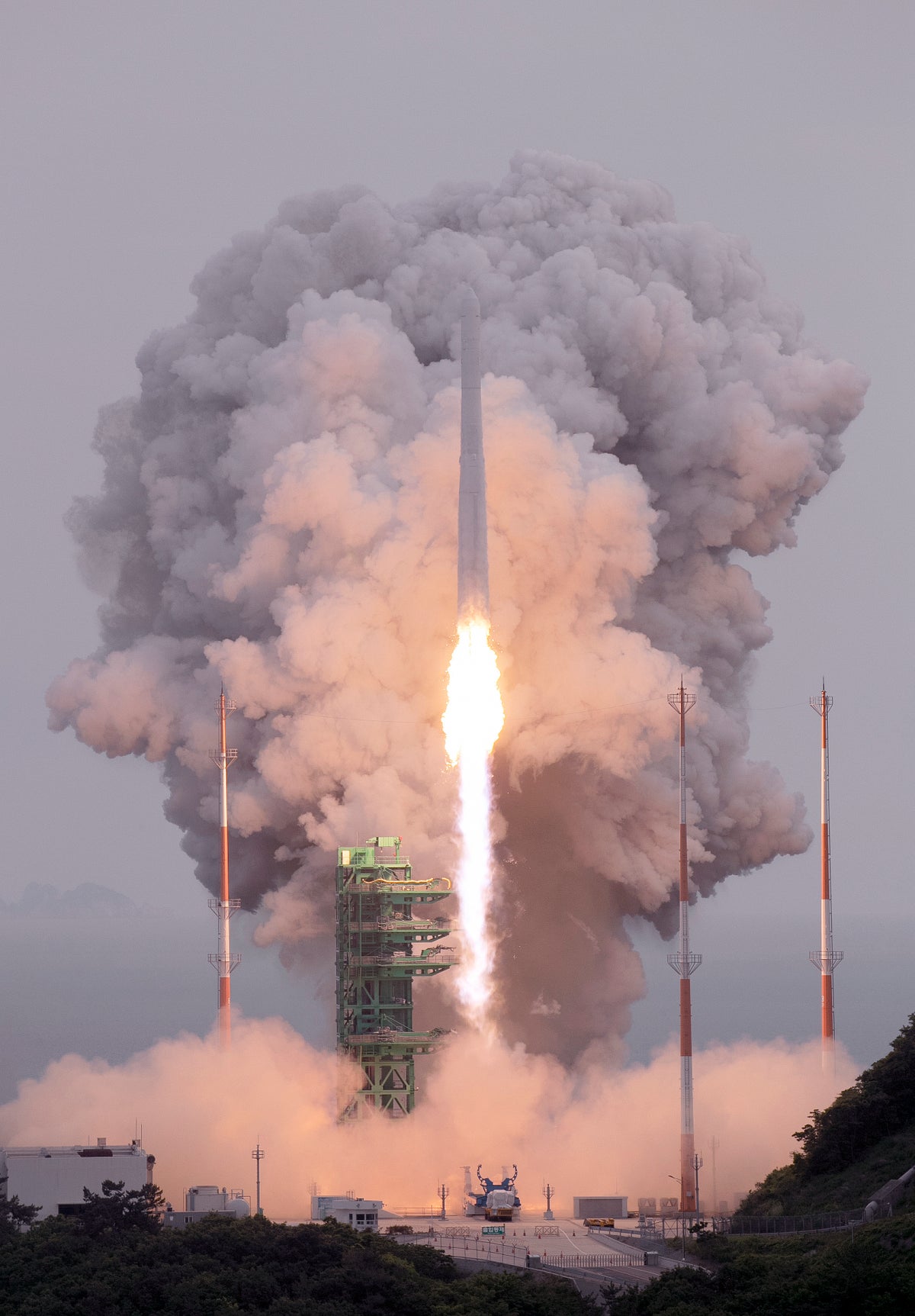
South Korea launched a commercial-grade satellite for the first time Thursday as part of its growing space development program, as rival North Korea is pushing to place its first military spy satellite into orbit.
The two Koreas, technically in a state of war, have no military reconnaissance satellites of their own and both are eager to possess them. The South Korean launch Thursday will likely assist its efforts to develop a space-based surveillance system.
The domestically built three-stage Nuri rocket lifted off from a launch facility on a southern island with a payload of eight satellites, including a main commercial-grade satellite whose mission is to verify radar imaging technology and observe cosmic radiation in a near-Earth orbit.
South Korean officials planned to announce the results of the launch later Thursday. If successful, it would boost South Korea’s hopes of catching up with Asian neighbors such as China, Japan and India in a regional space race.
Many experts say the launch will also help South Korea accumulate technologies and knowhow to operate military spy satellites and build long-range missiles.
The launch was initially scheduled for Wednesday but was postponed at the last minute due to a technical problem.
Last year, South Korea used a Nuri rocket to place a “performance verification satellite" in orbit, becoming the world’s 10th nation to send a satellite into space with its own technology. But that launch was primarily designed to test the rocket.
South Korea is expected to launch its first spy satellite later this year. It currently relies on U.S. spy satellites to monitor North Korean facilities.
Lee Choon Geun, an honorary research fellow at South Korea’s Science and Technology Policy Institute, noted that the satellite launched Thursday is designed to be placed in a sun-synchronous orbit, which is typically used for reconnaissance satellites.
South Korea already has missiles capable of reaching all of North Korea. But experts say it needs longer-range missiles to prepare for future security threats from potential adversaries China and Russia.
Tensions on the Korean Peninsula remain high following North Korea’s barrage of missiles tests since the beginning of last year. Some of the tests demonstrated its potential ability to launch nuclear strikes on the mainland U.S. and South Korea and Japan.
North Korean leader Kim Jong Un is seeking to develop more sophisticated weapons systems, including a spy satellite, to cope with what he calls intensifying U.S. and South Korean hostilities. Analysts say Kim wants to use an expanded weapons arsenal to win greater concessions from Washington in future dealings.
“North Korea must be so concerned about the South Korean satellite launch Thursday because much of Kim Jong Un’s interest now is in possessing a spy satellite,” said Moon Seong Mook, an analyst for the Seoul-based Korea Research Institute for National Strategy. “He has a strong desire to launch a spy satellite before South Korea does.”
Recent commercial satellite imagery of North Korea’s main launch center in the northwest shows activities that suggest “a new level of urgency in making the site ready to accommodate satellite launches,” 38 North, a North Korea-focused website, said Wednesday. It said the images indicate progress on a new launch pad is moving forward “at a remarkable pace.”
Last week, Kim examined a finished spy satellite and approved a plan for its launch during a visit to the country’s aerospace agency.
The spy satellite disclosed in North Korean state media doesn’t appear sophisticated enough to produce high-resolution imagery. But Lee, the expert at the Science and Technology Policy Institute, said it is likely to be capable of monitoring deployment of U.S. strategic assets such as an aircraft carrier and the movements of South Korean warships and fighter jets.







